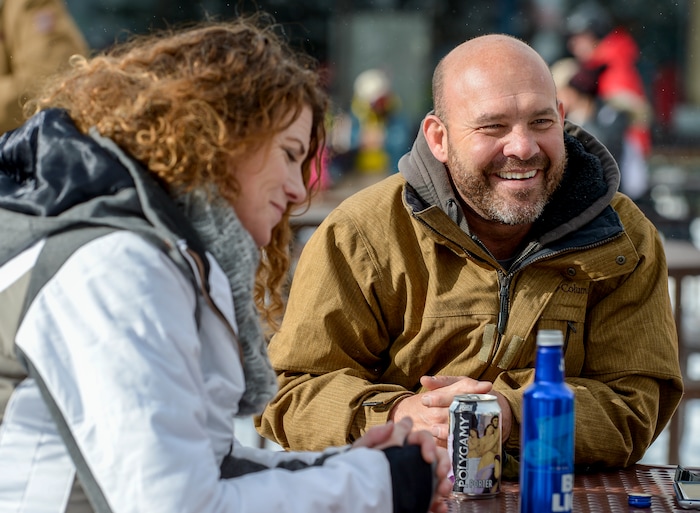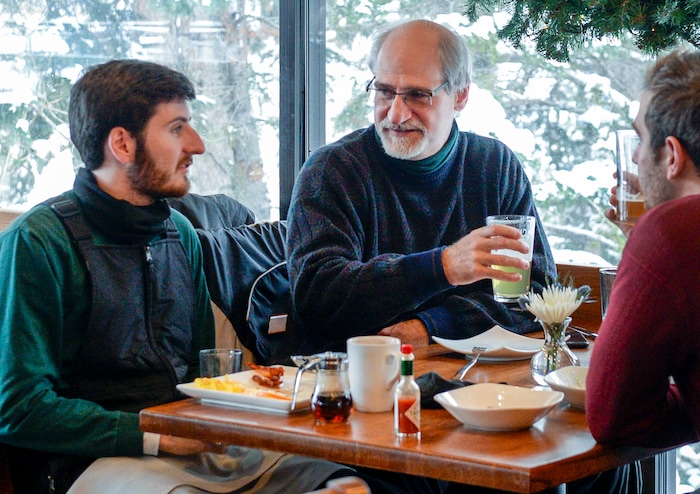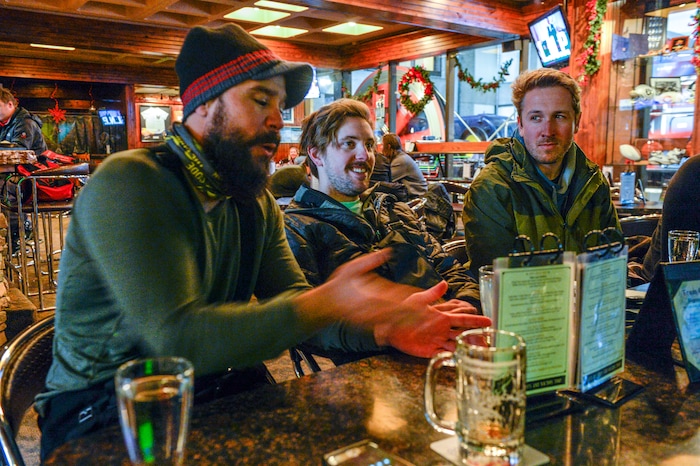Snowbird Resort • Michael Donoghue has vacationed in Utah to ski and snowboard for the past three Christmases. Next year, though, he doesn’t plan on coming back here.
He might go to Sun Valley in Idaho instead. Or maybe Mammoth Mountain in California, about a five-hour drive from his house in Los Angeles. “But probably anywhere in Colorado would do, too.”
None of those states, Donoghue noted, has the strictest drunken driving law in the nation. At 12:01 a.m. Sunday, Utah will.
The state’s new threshold, passed in 2016 and taking effect the day before New Year’s Eve, lowers the blood alcohol content (BAC) limit for driving under the influence from 0.08 to 0.05. Sitting at a picnic table at the bottom of a snow-covered slope, Donoghue, 46, took a swig of a beer, a Polygamy Porter from local Wasatch Brewing Co. “Now,” he said pointing at the can, “this one beer could push me over that limit.”
“It’s an incentive not to come here,” he added. “If I have to choose between possibly getting a DUI and going to another state, I’m going to go to another state. It’s too risky.”
Donoghue, who runs a company that manufactures devices to test blood alcohol levels, believes the law “does absolutely nothing for safety.” The 0.05 limit, he said, is unreasonably low and not an accurate indicator for when he — or anyone else — is drunk. And so he plans to take his family on a trip somewhere else; he estimates they typically spend $12,000 to $15,000 on their winter vacation, renting a home and cars and spending days at a ski resort. That money will now be spent in another state where, he said, he can drink responsibly without getting arrested.
From the beginning, the proposal to toughen the drunken driving law raised concerns for those in Utah’s hospitality and tourism industries. Many restaurant owners feared they’d see fewer customers, fewer drink orders from those who still dined out and ultimately lower profits. Others worried the state, with the draws of “the greatest snow on Earth” and five national parks, would see a dip in visitors not willing to fuss with the tough new threshold.
Gov. Gary Herbert maintained at the time that “our tourism and travel continues to grow and accelerate at double digits.” But some of the out-of-towners enjoying a light, snowy day at Snowbird Ski and Summer Resort on Saturday, the last day before the law starts, seemed to back the anxieties.
“It’s not worth it,” said Adam Piestrzeniewicz, from California. “You are now a criminal for having a beer at dinner or a glass of wine.”
For a state already perceived as having strange alcohol laws, this just makes it worse, added Mike Getz, also from Los Angeles.
Owen and Elliot Melfi came from North Carolina to visit their dad, Phillip, who moved to Utah in September for a job. The three sat at a little table inside The Forklift Restaurant, sharing a few beers with their biscuits and gravy to warm up after a few runs on the slopes.
“If he didn’t live here, I’d probably see it as a deterrent to come to Utah,” said Owen, 22. “It’s like a restrictive foreign country.”
Phillip Melfi said the state already has a lower percentage of alcohol in its beverages, which already “won’t stop anyone from getting drunk.” The new BAC threshold, he believes, won’t either.
He wishes the state would focus on other elements that distract drivers instead, like texting. “There’s more of that that could hurt you than alcohol. Alcohol is the smaller issue.”
Megha and Alex Derchak, a couple from Ventura, Calif., said the new law may be more restrictive but it will make them feel safer on the roads in Utah. They agreed, though: “Some of the other rules are incomprehensible.”
“Why I can’t get a martini bigger than an ounce is a whole other thing,” Alex Derchak said.
They come to Utah once a year to visit family and ski with their son, now 6 years old. Any time they drink alcohol, Megha added, they’ll now plan to call for an Uber or Lyft.
Chasen Stern, 27, from New Jersey, said when he and his friends booked a trip to Utah for this week, they specifically chose an Airbnb apartment within walking distance from a few breweries so they wouldn’t have to drive. It didn’t stop them from coming, he said, but it made them plan ahead more.
Several factors affect BAC, including the number of drinks, age, gender, body weight and the amount of time that has passed since the first drink.
Ian Peters lives in Park City and came to Snowbird with two of his friends visiting from California.
“At 0.05, you can’t even go and have a beer at dinner,” he said. Looking at his buddy Dan Velez, to his right, he joked, “You won’t even be able to have half a beer.”
Peters repeated the slogan used by the groups opposed to the measure: “Come on vacation, leave on probation.”
His group sat around a table at the Tram Club, watching a soccer match and drinking a few beers. They expected to burn off the booze by skiing, but Velez was a little worried that they wouldn’t be able to do that anymore after Sunday.
“It’s draconian, it’s fascist, it’s culty,” he said. “Whoa, you brought out the f word,” his friend said with a laugh. Peters added: “He loves that word.”
“At 0.05, you don’t even realize you have it in your system,” said Velez, who’s been to Utah seven times before but doesn’t know if he’ll come back again next year. “At 0.05 you could do gymnastics.”
The trio suggested that penalties should be lessened under the new threshold. Herbert had originally suggested that, but it was never worked into the law, which a slim majority of Utahns supported.





